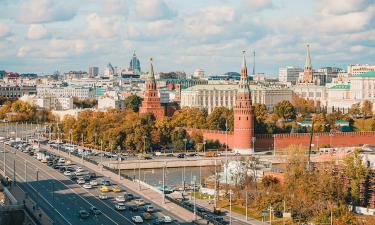Ukraine says it has natural gas to get through winter if Russia halts supplies
Ukraine's natural gas company declared Thursday that it has enough gas in storage to see the country through the winter if Russia halts shipments in a tense standoff over prices. Russia's state-run natural gas monopoly OAO Gazprom, which provides about a third of the gas used in Ukraine, has said it plans to stop selling gas to Ukraine on Jan. 1 unless the country agrees to a four-fold price increase. Gazprom also supplies about half the gas consumed by the European Union and most of that goes through pipelines that cross Ukraine, raising concerns that the dispute could affect supplies to the West. Gazprom has pledged that supplies to European customers won't be affected, but a spokesman for Ukraine's state-run gas provider Naftogaz questioned that.
If Gazprom stops selling to Ukraine, "they can probably reduce gas pressure in the pipelines. Nobody quite knows what happens then ... it will probably affect other European customers," Dmytro Marunich told The Associated Press.
In a brief 2004 dispute with Belarus, Gazprom shut down entirely the supply to that country's pipelines, which also affected gas transiting to Poland and Germany.
However, Gazprom would be unlikely to risk alienating European countries with a full shutdown of the flow through Ukrainian pipelines, which handle about 80 percent of the Russian gas going to the EU. Marunich said he did not believe Gazprom had the technical capacity to completely shut off the Ukrainian pipelines. Gazprom officials in Moscow could not immediately be reached for comment. Ukrainian Energy Minister Ivan Plachkov was in the Russian capital for talks on the dispute, but there was no indication of the sides coming close to an agreement.
As the prospect of a Russian supply halt loomed, Marunich said Ukraine was not in immediate danger.
The country maintains gas storage facilities with a capacity of about 32 billion cubic meters, about 40 percent of the country's annual consumption. He declined to say how much was currently in storage, but said the country has enough "to keep us afloat through the fall and winter under normal circumstances."
On Thursday, Ukrainian Prime Minister Yuriy Yekhanurov said that directors of major industrial enterprises had reported that they could quickly adapt to other energy sources such as coal or oil. Ukraine currently pays US$50 (Ђ42) per 1,000 cubic meters of gas. Gazprom is demanding that the price in 2006 rise to US$220-230, saying that is more in line with world markets. Ukrainian officials say they want a price increase phased in over several years and claim the sudden huge price hike would cripple industry; energy-intensive steel and heavy industries are a key component of the struggling country's economy. "This is a price that Ukraine will never accept," Ukrainian President Viktor Yushchenko said Thursday according to the ITAR-Tass news agency. "This price is a provocation." The dispute has brought to a boiling point the tensions that have strained relations between Moscow and its former imperial satellite since the reformist Yushchenko came to power in Ukraine after last year's Orange Revolution, promising to move his nation of 48 million toward integration with the West. Yekhanurov, the Ukrainian premier, this week insisted it was Kiev's right to take 15 percent of shipments passing through its territory to European markets as transit fees, reports ITAR-Tass. Gazprom offers Ukraine to pay 230 dollars for 1000 cubic meters. I.L.
Subscribe to Pravda.Ru Telegram channel, Facebook, RSS!




